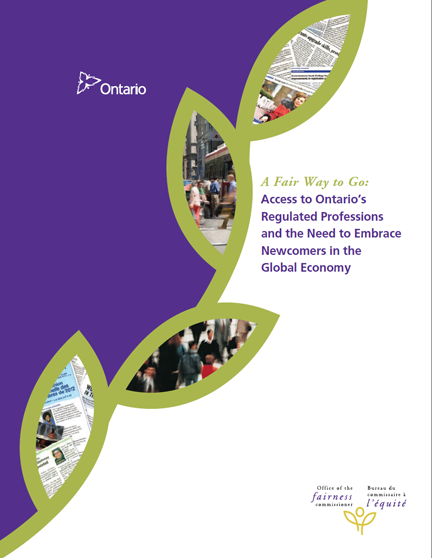A new
report from the Office of the Fairness Commissioner says Ontario’s regulated professions have made some great improvements over the past five years, but there’s still more work to be done.

“There are lots of people who join us in this province and they are qualified, but the difficulties are in getting the credentials assessed and then getting themselves back into their profession,” says Ontario Fairness Commissioner Jean Augustine.
“In general, we want the conversation to move beyond just this is what each [profession] is doing and this is how long it’s taking them to do this,” she tells Legal Feeds. “We want everyone who is internationally educated to be able to practise their profession.”
In regards to the legal profession, Augustine says she was pleased to see the changes made by the National Committee on Accreditation, which have increased the number of internationally trained lawyers seeking to practise in Ontario. Specifically, the NCA now requires fewer compulsory courses for international applicants, some applicants are being exempted from the articling requirement, and the University of Toronto Faculty of Law now offers a bridging program for lawyers trained abroad.
Augustine also says she is pleased to see the Law Society of Upper Canada’s creation of a pilot project for a Law Practice Program as an alternative path to licensing, especially since it has become increasingly difficult for internationally trained lawyers to find articling positions in Ontario.
With the Federation of Law Societies of Canada’s ongoing initiative on the establishment of national admission standards, Augustine says this is a good move as her office has been asking regulatory bodies to look at things like applicants’ scope of practice and competencies rather than just education, paper documentation, country of origin, etc.
She also says we need to keep in mind that the world is becoming a smaller place.
“There are indicators that a number of the regulators have to look at their practices to ensure not only their membership, but also to ensure that new people are bringing new ideas. We are now in a very global, competitive world and it’s important for us to recognize that,” she says.
The report, “
A Fair Way to Go: Access to Ontario’s Regulated Professions and the Need to Embrace Newcomers in the Global Economy,” sets out the following key areas that still need improvement from all regulatory bodies and government:
• Provide clear rationales for requirements.
• Recognize acceptable alternatives for meeting registration requirements.
• Identify exemptible requirements.
• Strengthen assessment criteria and methods.
• Improve information for applicants.
• Address the burden of fees.
• Ensure reasonable and transparent timelines.
• Facilitate opportunities to start the registration process outside Canada.
• Increase focus and rigour of training for decision-makers.
• Provide anti-discrimination training.
• Offer better information about reviews and appeals.
• Enhance access to records.

 “There are lots of people who join us in this province and they are qualified, but the difficulties are in getting the credentials assessed and then getting themselves back into their profession,” says Ontario Fairness Commissioner Jean Augustine.
“There are lots of people who join us in this province and they are qualified, but the difficulties are in getting the credentials assessed and then getting themselves back into their profession,” says Ontario Fairness Commissioner Jean Augustine.